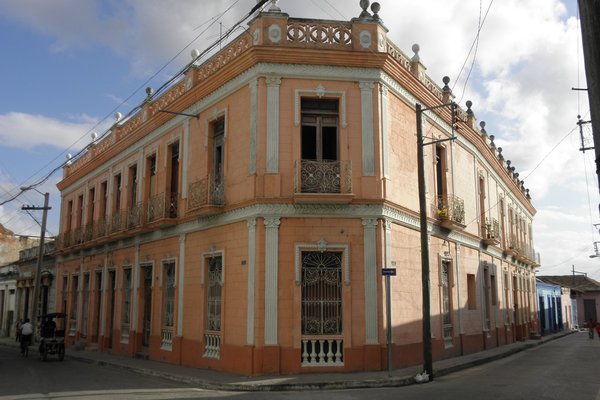Cuba
Camagüey
The Historic Centre of Camagüey has an unusually irregular urban layout.
This inland town was one of the first founded by the Spanish in Cuba. The nucleus is the Plaza Mayor, from where numerous churches and convents can be found in equidistant positions to the four winds. Earthen components and clay vessels for water storage were used in its domestic architecture.
Community Perspective: A “decent city with its pluses and minuses”, including lots of churches and squares.
Site Info
Official Information
- Full Name
- Historic Centre of Camagüey (ID: 1270)
- Country
- Cuba
- Status
-
Inscribed 2008
Site history
History of Camagüey
- 2008: Inscribed
- Inscribed
- Type
- Cultural
- Criteria
- iv
- v
Links
- UNESCO
- whc.unesco.org
- Related
-
- cuba.travel — Cuba Travel
All Links
UNESCO.org
- whc.unesco.org — whc.unesco.org/
Related Resources
- cuba.travel — Cuba Travel
News Article
- March 2, 2010 cubaheadlines.com — The works to turn Calle Maceo into a boulevard, a project included in the Management Plan for the area declared World Heritage Site, will start next March 1st in Camag
Community Information
- Community Category
- Urban landscape: Colonial
Travel Information
Recent Connections
-
Perfect Inscriptions
2008 -
Built or owned by Spanish
One of the first seven villages founded… -
Cemeteries
Santo Cristo del Buen Viaje
Connections of Camagüey
- Geography
-
-
Situated in one of the SIDS
Cuba 2008
-
- Trivia
-
-
Built or owned by Spanish
One of the first seven villages founded by the Spaniards in Cuba (AB ev)
-
- History
-
-
History of Aviation
"An event of worldwide connotation was the Camagüey Sevilla flight, made by the Spanishes Mariano Barberán y Joaquin Collar in 1933. They flew the airplane so called 'Cuatro vientos'.."(nom file). It was the longest Atlantic Ocean crossing until then. The plane disappeared when continuing from Camaguey to Mexico.See en.wikipedia.org
-
- Architecture
-
-
Art Nouveau
-
Art Deco
"The stylistics influences arriving in the city at different stages of its evolution can be identified – such as Eclecticism, Neoclassicism, Art Deco" (AB ev) -
Neoclassical architecture
-
Mudejar style
"The constructive techniques that they shows and the use of the clay, the third and the lime to reproduce the ornamental elements, design and formal expression that characterize the built repertoire of the property, reflect the notorious Mudejar influences" and "The Mudejar framework of the roofs with braces, angle braces and bowses" (nom file)
-
- Damaged
- World Heritage Process
-
-
Perfect Inscriptions
2008
-
- Religion and Belief
-
-
Beatified Persons
Blessed Jose Ollalo (Died 1889. Beatified Nov 2008). Helped the sick and wounded during Cuba's Ten Year's War, giving aid to people on both sides.Worked in Camaguey and was beatified at the town's 18c Nuestra Señora de la Soledad church. Signficantly, Raoul Castro attended the ceremony indicating a rapprochement between the Cuban Communist Party and the Roman Catholic Church -
Cathedrals
Catedral de Nuestra Señora de la Candelaria (rebuilt 19th century)
-
- Human Activity
-
-
Piracy
"After almost continuous attacks from pirates the original city (founded as Santa Maria del Puerto del Principe around 1515 on the northern coast) was moved inland in 1528" (wiki)
-
- Constructions
-
-
Equestrian Statues
In Ignacio Agramonte Park (1911):Ignacio Agramonte, a general in Cuba's Wars of Independence against Spain in the 19th centurySee en.wikipedia.org
-
Hospitals
San Juan de Dios -
Cemeteries
Santo Cristo del Buen Viaje
-
- Timeline
News
- cubaheadlines.com 03/02/2010
- The works to turn Calle Maceo into…
Recent Visitors
Visitors of Camagüey
- Alejandro Lau
- Alexander Barabanov
- Ali Zingstra
- Ammon Watkins
- Anna Wludarska
- Atila Ege
- Bauchat
- Chantal den Haan
- ChrisN
- Claire Bradshaw
- ctravel
- CynthiaW
- Daniela Hohmann
- Els Slots
- Ertai
- Eva Kisgyorgy
- Fan Yibo
- Felicité
- Femke Roos
- Filip Murlak
- Harald T.
- Iain Jackson
- Ivan Rucek
- Jacob Otten
- Jens
- Jonas Kremer
- jonathanfr
- Joyce van Soest
- KarenBMoore
- Lara Adler
- Lukasz Palczewski
- lynnz317@aol.com
- Malgorzata Kopczynska
- marcel staron
- MarcoB_0
- Martina Rúčková
- MH
- Michael Ayers
- Mikko
- Nihal Ege
- PabloNorte
- Paul Schofield
- Philipp Leu
- Pieter Dijkshoorn
- Reza
- Roman Bruehwiler
- Sabrina Liebehentschel
- sibariam
- Slavi
- Stanislaw Warwas
- Thomas Buechler
- Thomas van der Walt
- triath
- Vanessa Buechler
- Vsacan
- Wojciech Fedoruk
- Xiquinho Silva
- Zizmondka
- Zoë Sheng
Community Reviews
Show full reviews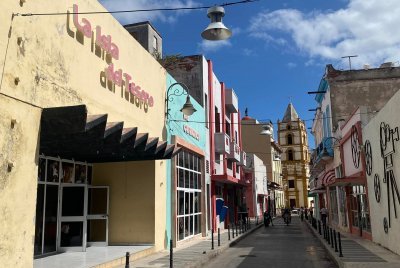
Visited in January 2023.
The historic city, which was plundered even by Henry Morgan, but was added to the heritage list, as if because of its unique layout. There is a legend that the planning of streets and alleys of the city was specially made confusing, similar to a labyrinth, so that pirates would get lost in it. But if you put aside the legends, the layout here is like that of an ordinary historical European city. Usually, the Spanish built cities in their colonies with an irregular layout only in areas with complex relief, and they used their favorite grid method on flat surfaces. Camagüey is a rare colonial exception, which, together with the scale of the old city, makes it an good example of the transfer of European medieval urban planning traditions and techniques to the New World.
In my opinion, the city here stands out as the center of Catholicism in Cuba, with an ensemble of active churches, it is not for nothing that John Paul II visited this city during his historic visit to Cuba in 1998.
Keep reading 0 comments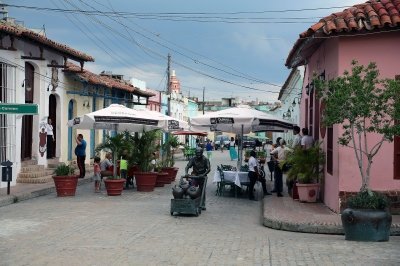
Visited this site in May 2018.
As described, this city, founded in 1528, provides a unique irregular urban layout plan with numerous squares dominated by religious buildings. Such irregular street design was likely needed to confuse and make life difficult for possible invaders (didn’t help as Henry Morgan burned the city).
There is in fact several squares dominated by a church or colonial building and connected by narrow streets. Our most favorite was Plaza del Carmen with lovely sculptures of locals doing everyday staff, like carrying famous clay pots or reading newspapers. It is also place for excellent Martha Jimenez Perez gallery. She is one of the most famous contemporaneous Cuban painter. We even purchased beautiful sketch for 80 CUCs.
In overall, decent city with its pluses and minuses, not star attraction, probably deserving WHS status.
Keep reading 0 comments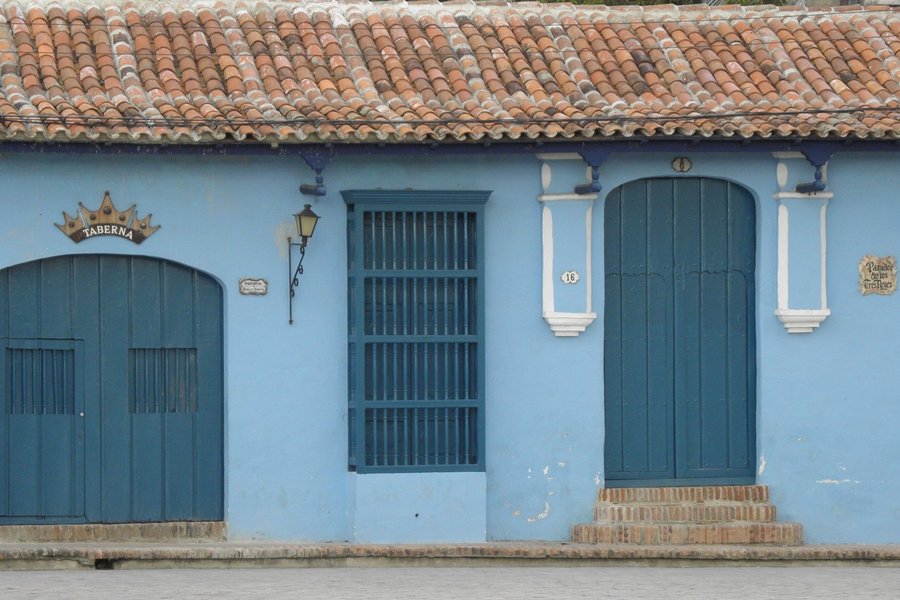
I visited Camaguey in April 2011. Normally I love the cuban people, but I found them overwhelming as they hounded me in the city limits.
The preserved old town is beautiful, but surrounded by the slums characteristic of a third-world city. The streets are very narrow and seemed very difficult to navigate (I was not driving).
Am I glad I went? Yes. Am I glad I paid for a tour instead of trying to make my way through the city myself? definitely. Would I revisit the city? Probably not. That said, the province of Camaguey itself is beautiful.
Keep reading 0 comments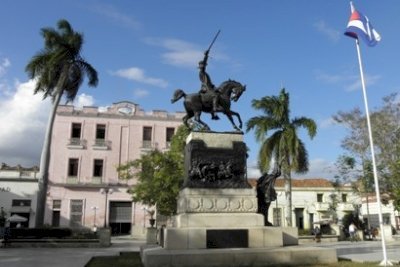
The Camaguey nomination file has the length of a Fidel Castro average speech. Every ice cream parlour is named. This is not helped by an El Cheapo translation into English of the file. Why this has become a WHS is a mystery, and it remained that way after I had visited the place.
It’s not an unfriendly city though. It probably has more “normal” city life than the average Cuban town: a large shopping street, terraces on the main square. Lots of churches too. It is definitely pleasant to walk around for an hour or two, exploring the many little and larger squares. But that’s about it.
The nomination draws heavily on Camagüeys Andalucian touches, but you’ll need a lot of imagination to see this parallel. The large clay jars I only saw deliberately placed on the town’s tourist trail: in the former convent/museum and next to the main church.
Keep reading 0 comments
